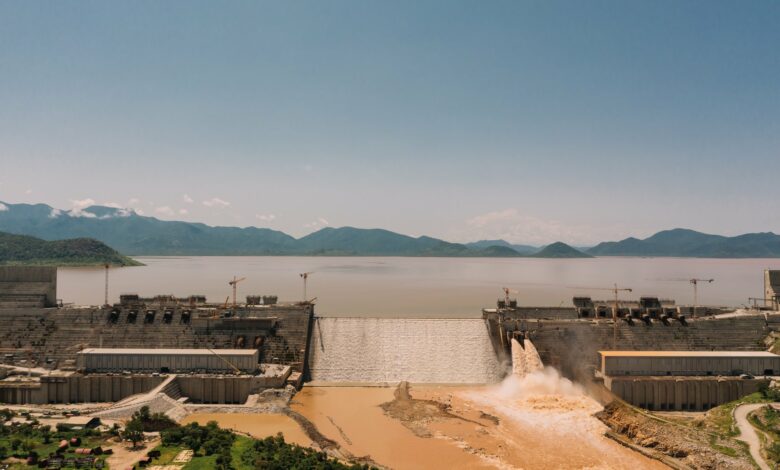
Sunday morning saw a round of negotiations in Cairo on the Grand Ethiopian Renaissance Dam (GERD) with delegations from Egypt, Sudan and Ethiopia.
Egyptian and Ethiopian leaders are meeting in Cairo on the sidelines of the Sudan’s Neighboring Countries Summit.
Professor of water resources at Cairo University Abbas Sharaki said that this meeting serves to follow on the July agreement.
“These meetings are surrounded by strict secrecy, and it is not known how it will proceed,” Sharaki told Al-Al-Masry Al-Youm.
“Is it under the auspices of the African Union as before? Are there international parties? And if there are international parties, what is their role? Such as the EU, the US, or the World Bank?” he added.
“The main negotiation issues are supposed to be a continuation of what was agreed in Washington in February 2020. If the negotiation takes place anew, it will take more years. So we assumed that previous negotiations will be completed,” he said.
Sharaki anticipates an agreement to be reached in the coming weeks, owing to Egypt’s firm desire for this. However, he noted Ethiopia’s intransigence over the past years and its lack of cooperation in reaching a settlement.
“If there is political will on the Ethiopian side, during the current meetings, I expect that we will reach an agreement satisfactory to all parties, before the expiry of the specified period,” he added.
Sharaki pointed out that the fourth filling of the GERD is scheduled to be completed before September.
Reaching a satisfactory agreement for all
The Professor of Public International Law and head of the International Committee for the Defense of Water Resources (ICDWR) Mohamed Mahran, praised the statement issued by Egypt’s Ministry of Irrigation and Water Resources.
He also hailed the announcement that negotiations would resume in Cairo, with delegations from Egypt, Sudan and Ethiopia.
Mahran said that the ICDWR strongly supports Egypt’s position, and seeks to preserve its share of the Nile waters and its acquired historical rights.
In exclusive statements to Al-Masry Al-Youm, Mahran stressed the importance of concluding a binding legal agreement regarding the dates of filling and operating the dam.
He also added that it is vital that these negotiations reach an agreement that provides the means to settle GERD related disputes through international arbitration.
Mahran urged the importance of cooperation between all parties involved, that Ethiopia performs no unilateral actions until an agreement is reached, and that the rules of international law are followed.
He listed several important clauses from the 2015 Agreement of Principles, being:
- The principle of cooperation
- The principle of not causing harm to other states
- The principle of fair and reasonable use of water
- The principle of information and data exchange
- The principle of cooperation in filling and managing the dam
- The principle of maintaining the safety of the dam
- The principle of peaceful settlement of disputes
Most of these principles are adequately explained in the 1997 United Nations Framework Convention on the Non-Navigational Uses of International Watercourses, he said.
Minister of Water Resources and Irrigation Hani Sweilam touched on the necessity of reaching a binding legal agreement regarding the rules for filling and operating the GERD, taking into account the interests and concerns of all three countries.
Sweilam also stressed the importance of stopping any unilateral moves, especially filling and operating the dam in the absence of an agreement in violation of the 2015 Declaration of Principles.
Egypt continues to make the utmost effort to ensure the negotiation process is a success, the minister assured, adding that Egypt firmly believes in technical and legal solutions that will satisfy the interests of all involved parties and reach a desired agreement.
Edited translation from Al-Masry Al-Youm




